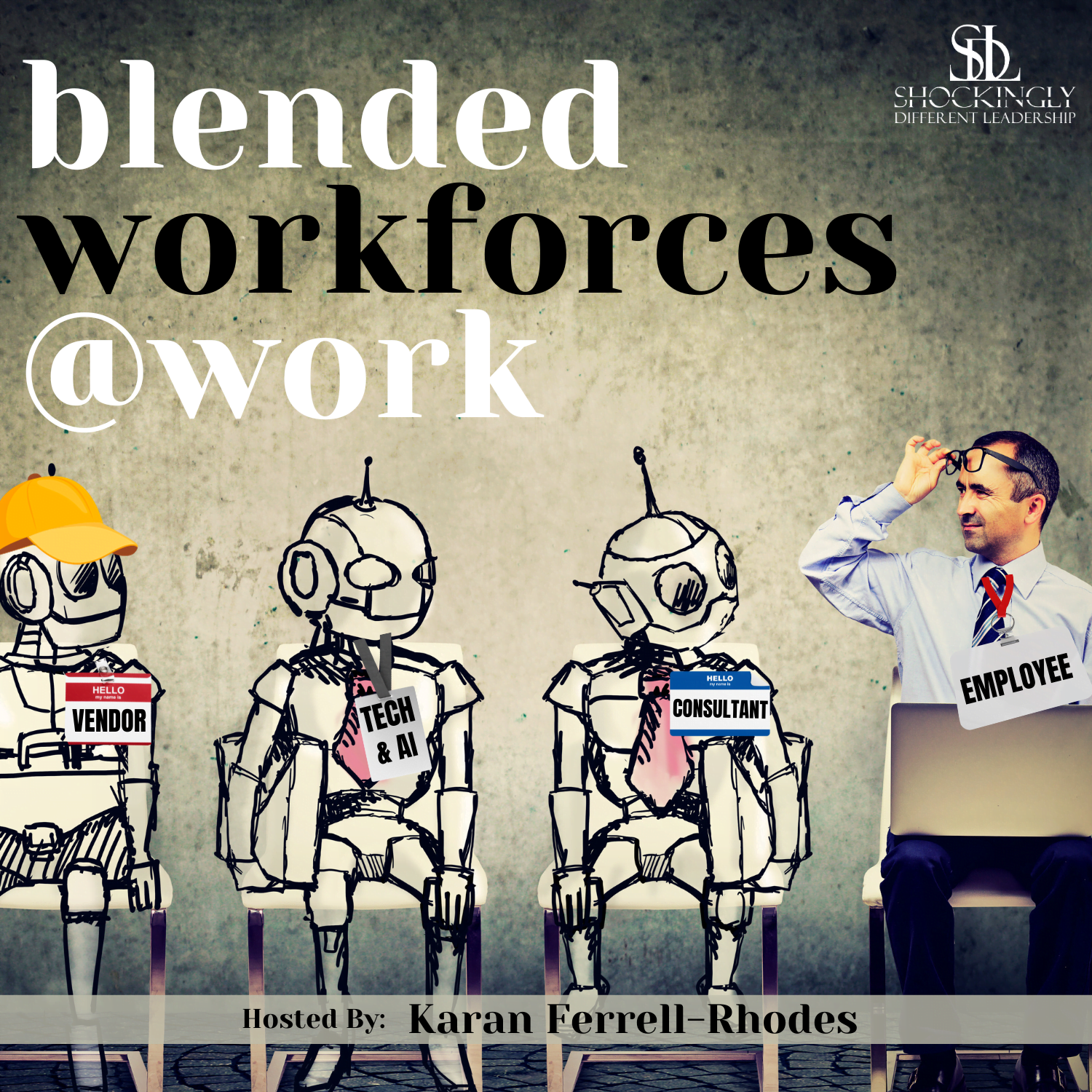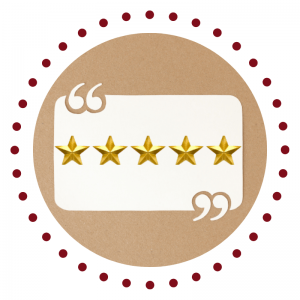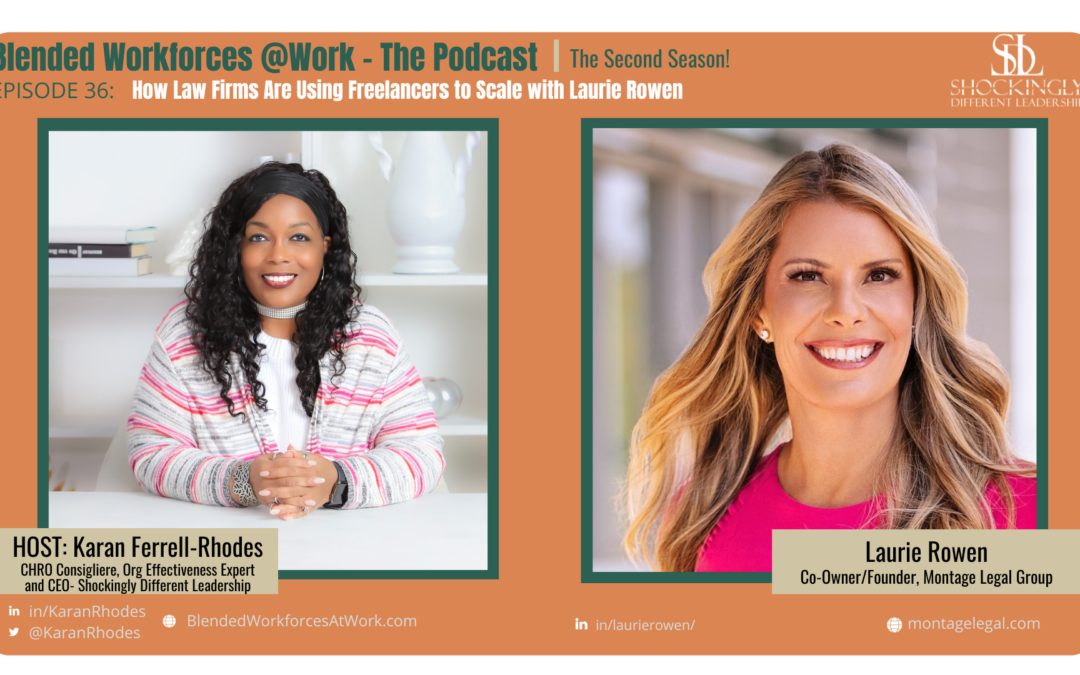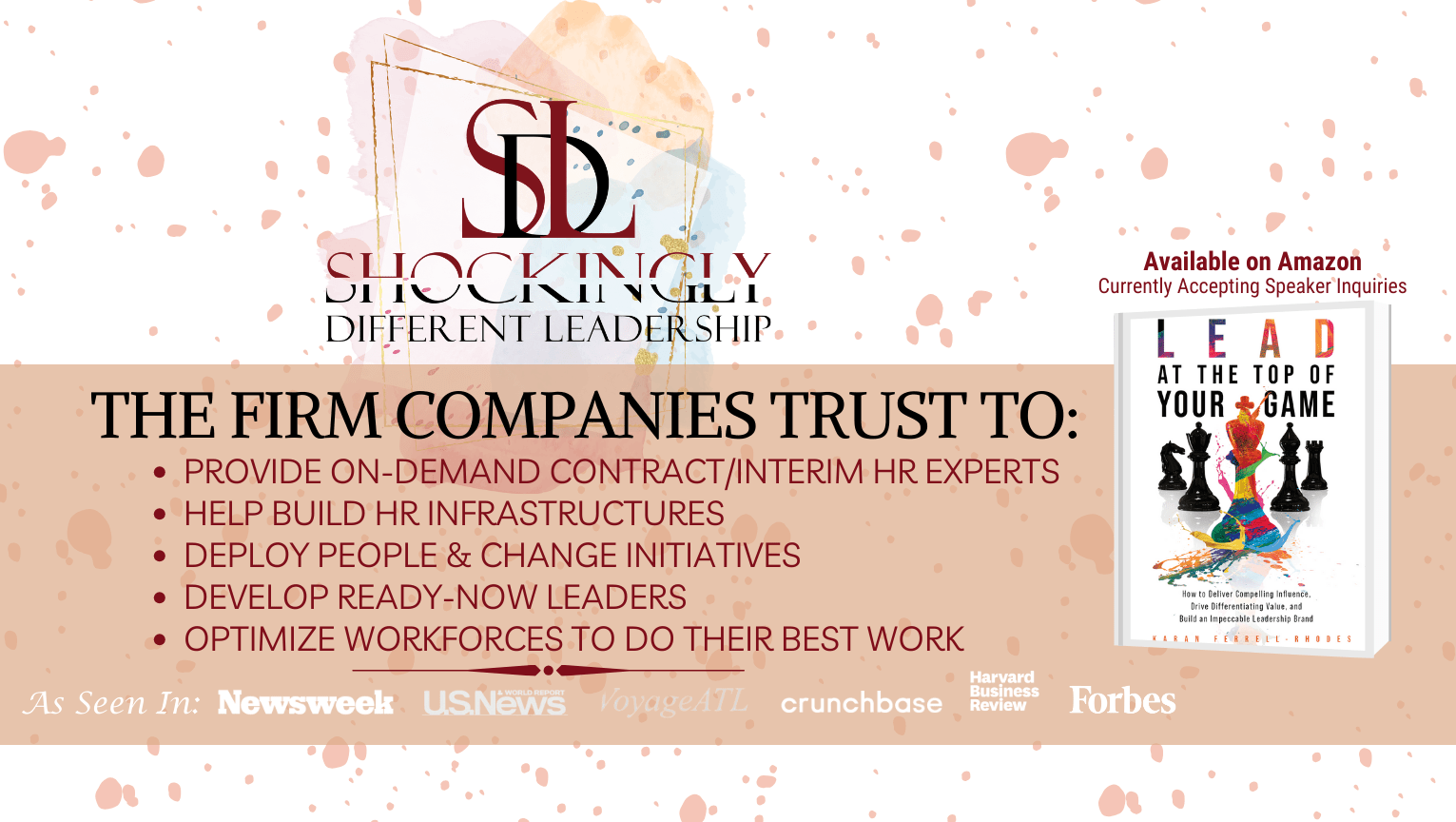IN THIS EPISODE, KARAN FERRELL-RHODES INTERVIEWS LAURIE ROWEN.
Laurie shares her journey from UCLA and USD Law School to founding Montage Legal Group alongside Erin Giglia, driven by their need for flexibility as new mothers.
Laurie explains how they overcame early skepticism about contract lawyers and how remote legal work has evolved post-COVID. She highlights Montage Legal Group’s unique matchmaking model, the integration of freelance lawyers with law firms, and future expansion plans. The episode closes with Laurie’s insights on leading with intellectual horsepower.
Laurie Rowen is a co-founder of Montage Legal Group, a company that revolutionized legal consulting with a network of over 450 freelance lawyers.

Posted by
SDL Media Team
Rather view our video podcast?

WHAT TO LISTEN FOR:
- How does Montage Legal Group match freelance lawyers with law firms?
- What are the benefits of using freelance lawyers for law firms?
- How do freelance lawyers integrate with full-time staff in law firms?
- What is Montage Legal Group’s target market?
- What challenges exist in hiring experienced freelance lawyers post-COVID?
- How does leading with intellectual horsepower apply in the legal industry?
“We joke that we are a human app [for law firms].”
FEATURED TIMESTAMPS:
[03:16] Laurie’s Personal Background
[04:52] Laurie’s Professional Journey and Founding Montage Legal Group
[08:45] Challenges and Successes of Montage Legal Group
[14:16] Montage Legal Group’s Business Model and Client Relationships
[20:04] Signature Segment: Laurie’s entry into the LATTOYG Playbook: Integration of Freelance Lawyers with Full-Time Staff
[22:02] Target Market and Business Expansion
[24:19] Challenges and Future Plans
[29:31] Signature Segment: Laurie’s LATTOYG Tactic of Choice: Leading with Intellectual Horsepower

ABOUT LAURIE ROWEN
Laurie Rowen graduated from UCLA in 2001 and obtained her JD from USD Law in 2004. After litigating product liability lawsuits at Snell & Wilmer, LLP, Laurie left the law firm after having her first daughter work remotely for other law firms. Along with another associate, Erin Giglia, Laurie co-founded Montage Legal Group, an exclusive platform of over 450 talented freelance lawyers providing remote contract and project-based legal consulting services to attorneys nationwide.
Laurie and Erin have been featured in numerous publications, including Forbes.com and the ABA Journal, and they frequently speak and write about ethics and contract lawyers.
LINKS FOR LAURIE:
- Website: montagelegal.com
- LinkedIn: linkedin.com/in/laurierowen/
- Facebook: facebook.com/montagelegal
- Instagram: instagram.com/montagelegalgroup
- X: twitter.com/montagelegal
PEOPLE AND RESOURCES MENTIONED:
Ethics of Freelance Lawyering (Parts 1-4), published in the Recorder/Law.com (October 2024): montagelegal.com/wp-content/uploads/2024/11/Law.com-Recorder-Ethics-of-Freelance-Lawyering-2024.pdf
ADDITIONAL RESOURCES FOR YOU:


Episode Sponsor
SDL is the go-to firm companies trust when needing to:
- supplement their in-house HR teams with contract or interim HR experts
- implement leadership development programs that demonstrate an immediate ROI and impact on the business

Episode 36 | How Law Firms Are Using Freelancers to Scale with Laurie Rowen
Laurie Rowen 00:01
Think about it, when a law firm has just one associate that is one brain, that is one expertise, that is one person, when that law firm is able to add a trademark lawyer, an M and a lawyer, an employment lawyer, a corporate lawyer, they’re able to expand better serve their clients. They’re able to grow their business. And that intellectual horsepower makes them look really good.
Karan Rhodes 00:01
Blended workforces are one of the hottest talent strategies today, where employers are using a mix of traditional employees with external resources like independent contractors, coaches, consultants, vendors, and technology solutions, all in order to enhance competitiveness, ensure cost flexibility, and expedite business goals. But how are the successful companies infusing blended workforces into their business strategy? And what are the critical success factors and pitfalls to avoid during implementation? And on the flip side, what does it really take for suppliers to improve their chances of finding and landing contract opportunities? The devil is in the details, my friends! I’m your host, Karan Ferrell Rhodes, and it’s time to get smarter about Blended Workforces at Work!Hello, my superstars. This is Karan, and welcome to another episode of the blended workforces at work podcast. On today’s episode, we have a representative from our external talent community in an industry that we don’t usually think of when we think of blended workforces. But boy, are they making an extreme impact in helping their industry. And you’re going to find out what I mean in just a second, but please welcome with me on today’s show Laurie Rowan. And Laurie is a founder, is the founder and co owner of montage Legal Group, which is an exclusive platform of over 450 talented freelance lawyers who provide remote, contract and project based legal consulting services to attorneys nationwide. And one of the reasons why I was dying to have Laurie on the show is because I didn’t realize there were a few firms that do provide similar services. But she has an interesting model that she does that they leverage to provide on demand expert legal talent to attorneys nationwide. And I thought, Wow, what a fantastic way to feature part of the blended workforces ecosystem. So welcome to the show Laurie.
Laurie Rowen 02:20
Thank you so much. Karan, I’m so excited to be here on this podcast. Excited to speak to you today.
Karan Rhodes 02:25
We’re so thrilled to have you. You know, I have a million questions. I always do, as my listeners know, I’m always curious about people, their stories, business models and everything, but before we delve into the nitty gritty, you know, we always love to learn just a tad bit about our guests, so only for just as much as you feel comfortable, would you mind giving us a sneak peek into your life outside of work?
Laurie Rowen 02:49
All right. Well, I’m a mother to two daughters. I have a 15 year old daughter and a 16 year old daughter, and married to a husband who’s a lawyer. I have a little fur baby too, who’s a five year old little girl puppy. So that’s what I spend my time doing these days we are in the high school days with a junior looking at colleges and kind of getting into that phase and just talking to my sister Betsy yesterday, thinking, how are we both going to be empty nesters coming up? What’s happening? So I just basically spend my days at dance competitions and cheer competitions and school activities. But I love it. I’m loving this phase of life,
Karan Rhodes 03:27
And really enjoy it, because we’re recently empty nesters and the time flies before you know it, and I totally relay. We just have the one daughter, but it was cheerleading and academic competitions, and then, you know, searching for colleges and applying and all that kind of thing. So you’re in a great phase of life right now, so enjoy every moment of it. Yes, I’m trying Awesome. Well, thank you so much for being kind to share, and good luck with you and the girls as well. I’m sure they’re going to make fantastic selections for their lives. But now we’d love to turn and talk a little bit more about you professionally. And would love to start to understand a little bit about your background before montage, and then what was the journey to you? Founded, co founded your firm?
Laurie Rowen 04:25
Okay, sure. So I met my husband in law school and went to UCLA, undergrad, USD Law School in San Diego, and live here in Orange County. And straight from law school, I went to work at Snell and Wilmer, which is a very large law firm based out of Phoenix, but I was at the office here, and I worked in the product liability department. I was constantly in trials. I was constantly traveling. And I loved my firm. I loved the people I worked with, but given that my husband was also a busy lawyer in trials, I sort of knew from day one, um. Um, how am I going to continue this when I have children? Yeah, and I hoped I could. I saw some lawyers in my law firm become partner and make it happen. I just didn’t know if it was something that I was going to be able to do. So early on, I started thinking, what else could I do? How can I do something and not quick work completely. I originally wanted to be a stay home mom, but my husband said, Wow, we chose to live in Orange County, a very expensive area. Yeah, you need to be a double income family, like most families need to be in California. So I ended up kind of thinking about the idea of doing contract work, which is lawyer to lawyer work. There’s a council record who represents clients. And I thought, well, maybe I could work from home, have a little bit of a part time job, and continue my legal career. So on to how we started. This is kind of the story. Very interesting. How it happened. I was walking in through the parking lot, and I had just found out I was pregnant. I think I was about five weeks pregnant. I ran into Aaron Julia, who would become my business partner, and we were walking in, and they go, how are you doing? She said, Oh, I have a two year old at home, and he just threw up on me. And I was up all night, and my husband’s traveling. I thought, wow, this is a stressed out mother lawyer. And we walked into the office and she said, Hey, I have a secret. And I said, a secret. We didn’t even really know each other. Work together, but we’re actually best friends at all. At the time, she pulled me into her office and she said, I’m six weeks pregnant. I said, I’m five weeks pregnant. And we thought, oh my gosh, why are we telling each other this, right? Honestly, it was so interesting. And I said, What are you going to do when you have your second baby, my first baby? She said, What do you mean? What am I going to do? I said, Are you going to continue to work? And for her, that was a foreign question. She was like, of course, I’m continuing to work in this law firm. And I said, I think I went out, I think I have this idea to do contract work. And at that time, contract lawyers were basically lawyers who couldn’t get jobs. They were never lawyers like we were. Once. I had a great job where the top of the market went to great law schools, and so she did, hmm, interesting idea, and we kind of decided, like, we might do this together. I ended up quitting. Right when I had my daughter, she ended up staying a little bit longer about a year after, but eventually, because of this little conversation, right, we walked in to the firm, we ended up starting montage legal group together.
Karan Rhodes 07:39
Wow. That is amazing. What a fantastic story. And I would say, from my perspective, it is an example courage, because you all were having to face not only founding a firm or what a service that you wanted to offer, but balancing that with your growing families, as well as fighting the stigma of, I forgot how you classified it, but lawyers who weren’t trying to go up the lawyer ladder, if you will, to get to partner, and that’s amazing.
Laurie Rowen 08:18
Absolutely, yeah, there was a huge stigma. And this was about 2008 when my daughter was born. So about 2009 is when we officially started. At that time, we had to fight so many stigmas. Right now, it’s really obvious you’re remote workers who work from home for other law firms. Back then, it was absolute education. So we have two sides to our business. We’re help two groups of lawyers. One is our law firms, their clients, really, really busy lawyers, small law firms. Maybe they have one full time employee, maybe two. We help them get the help they need. And we had to educate them, and they said, What remote workers, people that work from home as a lawyer? I don’t think so. That’s really weird. And we said, no, no, let us explain. You. Basically email the documents. We have a laptop. You type out the information, we send it back to you. I promise it could work. They said, Who would join your company? What kind of lawyer would want to quit their law firm, not make partner and work from home. What kind of lawyer is that? And so at that time, we sort of had to go the mommy lawyer direction, because they just didn’t get it. Why would this lawyer who went to Harvard, worked at Latham and Watkins for a decade? Why would she quit and work from home? Right? Our first lawyers were all these, Harvard, Latham and Watkins. So we said, hey, picture that woman in your office who you loved, your best associate who quit after having kids. Wouldn’t she want her back? And they said, oh, so it sort of made sense to them when we went that mommy lawyer direction. Now we’re actually 50% men and women, but it started out that people just. Couldn’t comprehend what we were doing until we said, Okay, we’re women. We’re keeping women in the workforce. We give examples of people, and they finally start to understand. Got it. And so we got lucky with early publicity, but it was all surrounded these are mommy lawyers. These are mommy lawyers. Oh my gosh. What a unique concept. They have lawyers who are really amazing working from home for other lawyers. So we just had to fight all the stigmas in the beginning, throughout, honestly, even up until COVID. Finally, COVID hit, and then, obviously it clicked workers. Everything blew up. Oh, we get it. Everything’s easy, of course, remote workers are, you know, great way to add to the workforce. So…
Karan Rhodes 10:40
Right. So now that you you’ve been on kind of both sides of the blended workforces table, having worked for a firm yourself and then now running a business that supplies external talent to firms. What advice would you give for law… You know, before I ask that question, let me ask another one. What is the number one issue or concern now today that your clients have about leveraging the great pool of talent that you have.
Laurie Rowen 11:10
Like I said, they understand remote working. There is zoom, there is remote working. So that part is fine. They still are concerned that this lawyer is going to provide good work product. Some of them still say, could they come to my office if I need them? And I say, No, this California lawyer actually lives in Madrid, Spain, so No, they can’t come to you. You don’t need them to come to you. Everything is going to be okay. So when someone is sitting next to you in the office, right by you and you see them. They walk in, you see them at their computer. They’re typing. You have confidence they’re going to turn around a work product. We still have these law firms that don’t fully trust the people at home that they can’t see, and so we always give tips to our freelance lawyers. When the our law firms email you and say, Hey, how’s that motion coming? It’s the most precious motion that my law firm has right now for this important client. We like to tell them, email them back immediately, even if it’s just to say, I’m working on it. I’ll get back to you Thursday, because if you get emailed on Monday, everyone knows we have email on our phones. Everyone knows what’s going on, right? When you’re a remote worker, when you’re the one at home that they can’t see, they get nervous that you’ve fallen off the face of the earth, right? So we’ve had clients call say, oh my gosh, Lori, I have been working with Julie. She’s doing this motion. I haven’t heard from her. I emailed her Monday, it’s Wednesday. So we say, Okay, calm down. We’re gonna help. Let’s see what happens. We emailed Julie, and she’s like, of course, I’m working on it. I’m almost done. I was waiting to respond so I could email them the motion and they could see it. We said, great. But in the freelance world, when you’re a remote worker, when you’re a temporary worker, you have to be more responsive, extra responsive. Let them know. Hey, I’m working on section one, two and three, even if nobody cares, just so they know you exist and you’re actually going to come through with good work product,
Karan Rhodes 13:07
Yes and it’s all about trust, right? And I think once they have a great experience, then they get over that hump, and they’ll start trusting your talent a lot more. But you’re right. Communication is so key to
Laurie Rowen 13:21
Communication is key. And we have law firms that have used us every year for 16 years. Those ones understand this is the way it works, but these new clients that come in, and we get multiple new law firms each month that are hesitant, right? Communication is the best way to just make them feel comfortable.
Karan Rhodes 13:36
Yeah, so I understand that you all don’t categorize yourselves as a staffing agency per se. Are you more of a matchmaker, or is there a platform where firms can select their talent? How does it really work?
Laurie Rowen 13:49
Yeah, so we’re not a staffing company. Staffing companies usually have employees, and so a lot of even like low level document review or companies that provide Secretary services, paralegal services. Usually they’re employees of a separate company. We are more of a matchmaker platform. So this is the way it basically works. We joke that we’re a human app. So we have a lot of technology in our business, but we do everything personal. Lawyers and law firms tend to want to talk to someone on the phone. Who are these people, what’s going on, and so we help them step by step. So a lawyer will come to us, a law firm, and say, Hey, I have three really important leases in a real estate matter that I need reviewed by tomorrow. I just don’t have the time to get to it. Who do you have? What’s their rate? So we then do is we contact all the lawyers in our group, maybe out of 450 we have 30 real estate transactional lawyers. Then we say, what’s your rate? And then they give us their rate. And then we tell that law firm, here are three really good options. Here’s their law school. Here’s where they’re barred. Here’s some experience they have with real estate. That law firm then selects the person, and within half an hour that those two can connect the law. Firms have a contract with us, and the freelance lawyers have a contract with us, already prepared. So when they’re ready for a match, they get the match, and a lot of times they come in wanting one lawyer for one really specific project, right real estate, and they go, Wow, do you have anyone that does employment litigation? Do you have anyone that has trademarks? Oh my gosh, I can expand my entire practice with your group without having to hire full time associates.
Karan Rhodes 15:25
Yeah, that’s awesome. And I think the agility that companies like yours bring to their client is just immeasurable, especially in today’s workforce, where it’s really tough to find highly skilled talent, especially if you needed them in a specific niche, and so being able to offer options for those that are looking for them is just amazing. What advice would you have for law firms out there that are considering expanding their capacity by using a firm such as yours, what, what may be one or two things that they should answer for themselves or think about before they, you know, reach out to try to secure talent. How does, how do they prepare for your experts to partner with them?
Laurie Rowen 16:16
Okay? Well, they do need to look at their caseload. Some law firms have bulk caseload. They always have a ton of work. It’s rare, because work ebbs and flows in the legal in the legal community. So they need to decide, Do you need a full time associate? If you do and that person’s going to work for you, 40 hours every week, 2000 hours a year, you should probably then hire an employee, because there is, especially in California, the independent contractor employee rules are very hardcore. They follow them to a T I was listening to one of your prior podcasts, and Leah stagler Would did an amazing job explaining the laws with misclassification. So if you really need a full time non temporary employee. Hire that person. So look at your caseload. Most of the time, especially small law firms, they can’t predict. They may have two cases right now, both will settle the next day. They don’t know. Right? You want your case to settle? Hiring a full time associate, big law first year associates, brand new lawyers, are starting at $225,000 a year. How could a small law firm hire that and then have a case settle and have no more work for that person? That’s right. So that’s when we come in with the advice. So look at your caseload. Do you need? What do you exactly need? And then we tell them to are you looking for just one particular area? Are you just employment litigation? Hire the employment litigators, litigators that you need for that Some law firms are looking to truly expand where maybe they’re a fifth year lawyer. They have their own law firm, but they’re pretty new. They’re amazing at getting clients right. They go golfing. They get all the clients the world, but they have to bring in a 20 year lawyer to help, almost train them and teach them how to handle a trade secret case or a trademark case. So we tell our law firms, look at the areas that you have, what is your need, and then we’ll be able to help them, you know, with that particular need. And other than that, there’s not a ton that they need to do to prepare to add someone, I actually think our law firms are shocked about how easy it is. They tell us, man, you guys are the secret weapon for law firms. The second I need someone, a Harvard lawyer, to come in, I call you and oh my gosh, these lawyers are there in a second. So it’s pretty easy, but again, follow the laws. Make sure they know exactly the laws in their state, because every state’s different, that’s right. And just we’re always here for resources, for our law firms, if they come into a problem, or they have a case that involves multiple different states, and they want to know, what are the legal, ethical rules that I have to follow? We’re always here as a resource. They just come to us constantly, and we’re always happy to answer questions
Karan Rhodes 19:02
interesting. Have you had any instances where lawyers who were employees of a law firm ended up being hesitant about working with your part timers that not part timers, your freelancers that were brought into to help alleviate some of the workload. What I’m trying to get at is, have there been any like a collaboration or integration issues? Are there any best practices around where work full time staff member has to work or collaborate with a freelancer?
Laurie Rowen 19:37
That’s actually a really good question, and we were concerned that these associates at law firms, usually a little bit younger lawyers, have 20 years of experience. They come in with all these big degrees. We were worried that there’d be some anger, jealousy. Why is this person taking from work? This is fair, and it was directly the opposite, especially in the legal community, when you’re a full. Time lawyer, you are always stressed. You are always busy. I mean, there’s a reason why our business exists. Lawyers, especially women, are just overworked, overstressed. So we found that when our lawyers come in, maybe it’s one, maybe it’s three, come into a case, that full time associate is like, oh my gosh, thank god. Oh my gosh, thank goodness. This is the best thing in the world. I might actually take the weekend off. We say, take the weekend off, take a vacation, right? We’re here for you. There’s I can’t count on. You know, my hands the number of law firm partners and associates that say I couldn’t breathe before you came in. I haven’t taken a vacation in five years. Goodbye. I’m out. I’m finally going to be able to relax and have a little bit of breather room. So it hasn’t been a problem integrating these remote temporary workers with the full time associates. Legal industry was very slow to adopt this blended workforce model, but when they do it is the easiest, simplest thing, because in lawsuits, it’s pretty easy to craft away. You do this motion, you do a deposition summary, you do this, then that law firm is always counsel. Record. They have contact with their ultimate client, and our lawyers are behind the scenes. They come in when you need them, they type, they do their amazing legal work, and they go away when you don’t need them.
Karan Rhodes 21:24
Interesting is your target market only law firms? Or do you have other offerings for the general public or other segments,like businesses?
Laurie Rowen 21:35
So we’re only lawyer to lawyer according to ethical rules, which are legal ethics that conflicts of interest aid in abetting the unauthorized practice of law. There’s all these legal, ethical rules that you have to follow in California and over the nation, ABA. So our business model only allows a lawyer to work for a lawyer. There has to be a lawyer on their side, that is, that representative that goes to court, that tries the case, and that lawyer represents the client, and the client being the restaurant, you know, the business, the corporation, protection company, yeah, we are behind the scenes. So that’s the that’s what we offer. Our lawyers can work for in house legal departments. So for example, if a big telephone company, let’s say has a legal department that has lawyers that are just a lawyer for that company. We can come in and work for that legal department because, again, there’s a lawyer on the other side. So it’s worked out great, because our business doesn’t compete with law firms. These law firms, we’re never going to steal their clients. We’re never going to have those clients love us more and want to hire us. We can’t work for you. We have to work for a lawyer. So we do get called all the time from members of the public or, oh my gosh, I own a restaurant and I need help. We go, Oh, are you a lawyer? And they say, No, I’m not a lawyer. That’s why I’m calling you. I’m not a lawyer. And we say, Oh, I’m so sorry. We have to only work for lawyers. So we do refer a lot of cases out to our law firms, which is another benefit for our clients, right? That come to us that when we have people that come, I need a trademark lawyer, we go, there’s a law firm who can help behind the scenes if they need help, but we can’t do that directly.
Karan Rhodes 23:18
That’s fascinating, absolutely fascinating. Well, I’m curious. I always love to know a little bit about the dark side or the rocky side. So can you share maybe a challenge that you all have had? I know it was them getting over the stigma of a freelance lawyer. But were there any other challenges in you really ramping your business model. You know, both as very strong leaders, leading this, this great service, there had to be a hiccup along the way. Can you share maybe one with our listeners,
Laurie Rowen 23:52
Absolutely. So it’s actually a challenge we’re facing now. So I’ll go back and explain. When we first started, the lawyers, the freelance lawyers, were flocking to us. It first was just moms of toddlers, where maybe one of my male colleagues would say, my wife quit her firm. It’d be amazing if she could work a little bit. She’s going a little bit crazy at home with the babies. Sure, sure she can join. Then we had groups of military spouses join our group and say, Hey, I don’t have kids yet, but I’m married, I’m only barred in California, meaning I’m only allowed to work in California, but I’m moving to Hawaii in two years. Could I join? We said, Absolutely, because the way we operate when you’re a lawyer, working for a lawyer, you can be in any state and still practice California law. So we said, Sure, military spouses joined. Then we had relaunch her so women who had left the workforce, who didn’t really want to they would have loved this model. I would have stayed at my law firm if they had let me work from home remotely. They were flooding to us. We had so many amazing lawyers coming to us, way more lawyers than we had clients in the beginning several years, COVID hit. It was everyone. It was just everything was blowing up. We had to hire we were doing our business by ourselves, basically, Aaron and myself. We had to hire project coordinators, full time employees and part time employees to help run our business. Now it’s a good thing for the legal community. Law firms after COVID have said, You know what? I’m gonna let this woman stay at our law firm. I’m not gonna push her out. I’m not gonna let her leave. I’m gonna say to her, what do you want? You want to work 100% remotely after having your baby. Great. Go ahead. You want to be part time. Great. Go ahead. Because I’ve had a change of heart. Change of heart. Amazing. This is what we wanted. We always joke we would have never started montage Legal Group, yeah, if they would allow blended workforces back in eight right, right now it’s harder for us to find the amazing talent. All these players that probably would have left and joined montage are now still at their law firms. Interesting. We do not want every woman to leave law firms. We want women to stay, become partner, be the leaders in law firms. But now it’s a little bit harder for us to find great talent, so we’ve decided to stay small. We only let in people who’ve had lot of years of experience, amazing law firms, amazing law schools. We want to keep our credibility. We want to keep our work product where it is. But the good side for law firms and the legal community is a very big challenge for us now, so we’re trying to get creative with trying to get people. There’s people who have their own law firm on the side, but maybe they need extra income. Maybe they’re a plaintiff lawyer that sues companies, right, but they only settle cases every three years. Well, how do you make money for the three years in between that big settlement? They come to montage, so they’re doing hourly legal work for us. We have a lot of people now joining that are in startups. Again, a startup, you may make $0 for five years, right? So your startup is sold. We’re kind of explain, hey, come join montage, do legal work for us in the meantime. So it has been a challenge of after COVID, finding the amazing people to join. But we’re they’re still joining. And some law firms have gone away from the COVID vibe and said, You know what, we want everyone back. They’re forcing everyone back in person. And then, though, a lot of people are leaving and saying, Hey, okay, I’m out. I’m going to join montage Legal Group.
Karan Rhodes 27:22
Amazing well for our listeners out there, because we do have quite a few that are leaders and business people. We do even have members who identify as lawyers. So if you own a law firm, you definitely take check out montage, because they could definitely be an workforce agility. Partner for you. They did not pay me to say that. I just think it’s a fantastic services offer, and it’s very much needed for a lot, obviously, from a lot of law firms, they need that assistance. Lori, we cannot let you leave the podcast without asking you our signature question that we’d love to ask our guests and for my new listeners out there. Long story short, our firm did a lot of research on leaders in a lot of professions and what it takes to really lead at the top of your game, and there were seven buckets that we our research identified. So we always love to ask our guests which of the seven buckets really resonated with them. And Lori’s was so kind to share that intellectual horsepower really resonated with her. And for those who are not aware, intellectual horsepower is all about using your knowledge and your areas of expertise to spot trends and notice things that others might have missed, but bring it back to your team or organization or what have you to bring additional value. So it’s just basically using your own superpowers and gifts and knowledge to make a difference and bring that knowledge to others. So curious minds want to know Miss Laurie, why did intellectual horsepower really resonate with you?
Laurie Rowen 29:04
Well, I absolutely love that term, intellectual horsepower. I want to use it. I’ll give you credit for it from your summary and into the book. But that’s it describes what our business is. We are the intellectual horsepower that can be added to a law firm in a blended workforce to enable that law firm to absolutely expand, to grow and to scale. Because think about it, when a law firm has just one associate that is one brain, that is one expertise, that is one person, when that law firm is able to add a trademark lawyer, an M and a lawyer, an employment lawyer, a corporate lawyer, they’re able to expand better serve their clients. They’re able to grow their business. And that intellectual horsepower makes them look really good, right? It’s the superpower. It’s the weapon for these small law firms that get these get this intellectual horsepower. Straight into that law firm. So love the term I’m going to use it,
Karan Rhodes 30:04
Please do. Please do. Well, awesome. Well, thank you so much for your perspective. We really appreciate it, especially you being a great co leader of your firm. Now, Laura obviously will have your bio and a lots of information about the firm and you and your co founder in the show notes, but we always love to give a little air time to our guests to let people know where they can find you. So would you mind sharing would be a great way for people to learn more about you and montage,
Laurie Rowen 30:37
Sure, absolutely. So we have a website, which is www.montagelegal.com and that website has links that you can click. If you’re a law firm looking to hire, you can go to that page. If you are a freelance lawyer looking to join, to get legal work, to become a freelance lawyer, you can click on that so there’s a lot of resources on our website, a lot of articles, any time we publish anything about the legal issues affecting freelance lawyers and law firms, it’s all on the website. So head to there. We have social media too. All the links are on our website.
Karan Rhodes 31:14
Okay, wonderful. Well, thanks again, Laurie, for the gift of your time. We truly appreciate the insights that you have given on this specific industry and area of blended workforces, and we wish you much continued success in the future.
Laurie Rowen 31:28
Thank you so much. I’ve loved being here.
Karan Rhodes 31:31
Awesome. We loved having you. And thank you to listeners for the gift of your time as well, because, as we always like to say, we do not take your patronage lightly, because there are literally millions of other podcasts you could be listening to. All that we ask is that you like and subscribe to the podcast on your favorite podcast platform of choice and share our podcast with just one friend, because by doing so, we will all get smarter about blended work forces at work. Thanks a ton. And see you next week. Well, that’s our show for today. Thank you again for listening to the Blended Workforces at Work podcast. You can check out the show notes, additional episodes, bonus resources, and also submit guest recommendations on our website at blendedworkforces@work.com. You can also follow me on Twitter, LinkedIn, Instagram or YouTube by searching for the name Karan Rhodes with Karan being spelled K a r a n. And if you like the show, the greatest gift you can give would be to subscribe and leave a rating on your favorite podcast platform of choice. This podcast has been a production of Shockingly Different Leadership, a global consultancy which helps organizations execute their people, talent development, and organizational effectiveness initiatives on an on-demand, contract, fractional, or project basis. Huge thanks to the SDL production and editing team for a job well done. Bye for now.

Want to be a Podcast Guest?
Check out our guest qualifications and submit our brief form to be considered.

Want Karan to be Your Podcast Guest?
- Blended Workforces & the Gig Economy
- Critical Execution Tactics of High-performing Leaders
- Entrepreneurism & Leading Your Business

Want to be a Podcast Sponsor?
All sponsorships come with a featured spot on show notes pages.

Like the Show? Please Leave a Review
If you like the show, it would mean the world to her if you left a quick review.
Your word is golden, so a HUGE thank you in advance!

#KeepInTouch
via our podcast alerts
Subscribe now to discover why thousands of monthly listeners who are passionate about doing their best work prioritize time each week to listen to the Blended Workforces @Work podcast.
#AboutSDL
#WhereToFindUs
MAILING
4480-H South Cobb Drive
PMB 219
Smyrna, GA 30080
PHYSICAL
2121 NewMarket Parkway
Ste. 108
Marietta, GA 30067
#ContactOptions
Customer Service Email:
service@shockinglydifferent.com
Call or Text:
770-384-1103
#Office Hours
MON-FRI
8:30 AM – 6:30 PM
Weekends By Appointment






